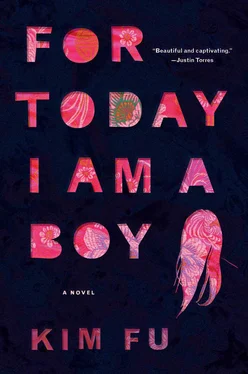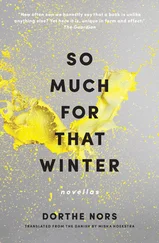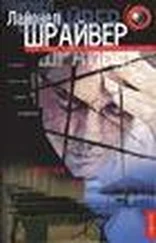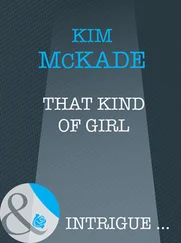Key in the lock. Our father walked in the front door and our mother walked out of her bedroom to greet him. The beet soup started to boil. We were covered in each other’s red fingerprints, smudged meaningless. Our hands were puckered from the bath, and the sunken stains highlighted the creases. “What are you doing?” Mother asked.
Bonnie and I looked at each other, puzzled. It had made sense a moment before.
My father took off his shoes, leaning his hand against the wall. He announced to no one in particular that a boy and a girl were too old to bathe together at our age. He disappeared into their room.
My mother snapped back to life. She dragged us by the arms to the bathroom. Bonnie sat on the closed toilet seat, swinging her legs and examining her rosy blotches, while I sat in the tub and my mother scrubbed me with the back of a sponge. My mother concentrated on each stain, scraping the rough side against my skin until I cried, rubbing and rubbing as though she could erase us both.
My mother worked part-time as a telemarketer. She came home later on Thursdays. My father thought it would be good for her to get out of the house and talk to people. People in far-off cities, mostly in America, screamed abuse in varying accents, their voices slightly hollow from the distance. As though cursing her from the bottom of a tin can.
On Thursdays, Bonnie and her friends went to a pool hall on the other side of town that didn’t card. They drank coolers in glass bottles, mostly sugar and dye.
One night, Bonnie came home running. I watched her through the window over the kitchen sink, running in zigzags down the long driveway as though someone were chasing her. She’s drunk, I thought, or she thinks she is.
I went to meet her at the door. She burst in and kissed me just to the side of my mouth. My face felt tight where she left a glazed mark. I licked it and it tasted like candy. “Mom is behind me,” she said.
Our mother had gotten onto the same bus. She had sat down near the front immediately and didn’t see Bonnie at the back. Bonnie looked out the bus’s window when Mother got on: they were stopped at the Chinese Association, a brick building covered in tangled graffiti, mostly black, like a ball of steel wool. “The Chinese Assoc,” Bonnie said to me, pronouncing it “a-sock” because that’s what was on the building; the rest of the gold-painted letters had fallen off and never been replaced.
Bonnie had slunk off the bus one stop early and bolted home through unfenced yards. She told me this once we had moved to the bathroom, where she could brush her teeth, both of us listening for the door. “The call center is nowhere near there,” I said.
Bonnie bared her foamy teeth. “I guess she doesn’t work on Thursdays.” She bent over the sink and spat. “What did you make for dinner? It smells great.”
“Pasta,” I said.
“What’s in it? In case they ask again.”
“Ground beef, cream, chicken stock, peas.”
We went out into the kitchen. Mother was already hanging up her coat, having slipped into the house without a sound. “Hi, Mom,” Bonnie said.
“Hi. Thank you for making dinner, Bonnie.”
“No problem.”
“Your father will be late today,” Mother said. “So we can go ahead and eat without him.”
I was disappointed. I got a secondhand thrill when my father praised Bonnie for her cooking, slapped her hard on the shoulder. No one had explicitly forbidden me to cook, but my father, just once, had reached out an arm to stop me when I went to help my mother with the dishes. “Women’s work,” he said.
We sat at the kitchen table and Mother served Bonnie and me. Bonnie ate like a hearty drunk. I watched my mother wander back behind the counter, slowly constructing her own bowl. Forgetting we were there, a distant look on her face, she took a mahjong tile out of her pocket and brought it to her mouth. I could just hear the sound of her teeth on the plastic, as though testing whether or not it was real.
Years later, after my mother died, I went to see the Chinese Association building again. The c in Assoc had fallen off, and the remaining o had been spray-painted over as a joke. I wondered why the letters fell from right to left. Some workman on a ladder, putting in the studs, losing faith as he went. The longer he worked, the looser the letters became: tight A, then s, then another s, then o, then what was the point, what was the point of this language, while people yelled at him from below: You interrupted my dinner, you woke my baby, how did you get my number, this number is supposed to be off your fucking lists, you people are the scum of the earth, how do you sleep at night? The workman had mounted Chinese first and it stuck.
In the rare solitude of Thursdays, I cleaned the house. I wore a full-length apron that my father had bought for my mother and that she had never used. It was made of cheap-looking acrylic with machine lace for the trim, the color of a pearl. Naked except for the apron, I pushed the vacuum across the floor, scrubbed the bathroom on my knees.
As I made dinner, I watched a cooking show on the portable black-and-white television, another gift in which my mother had no interest. I had lost most of the feeling in my fingertips from constant burning. I dipped my little finger in sauces while they were still in the pan to taste them, making a seductive face at the TV screen, imitating the show’s host: an older Italian woman, fifty and sumptuous as an overstuffed sofa. She hacked lamb shanks with a cleaver while wearing a brief slip dress. She pouted and I pouted. “Half the flavor is in the presentation,” we said in unison.
Before anyone came home, I folded and put away the apron, first pausing to hold it to my face. It was starting to get the rubbery smell of my own body.
When my parents first came to Fort Michel, Father did the books at an import-export store near the Chinese Association. He entered receipts for rugs and furniture in English and Chinese into a ledger. His desk was inside a metal cage with the safe and the register. Adele told me about the Chinese couple who owned the store. They affected a goofy, stumbling servility for their white customers, grabbing their hands and bowing deeply with every sale. “Thank you, thank you, thank you!” Then they’d head into the back to write it up, muttering to my father, “ Sei-gwai-lo. Idiots.”
He managed a McDonald’s off the highway for a while after that. Helen remembered the smell when he came home, the distinct beef-tallow perfume they sprayed onto the french fries. He wore a jacket and tie every day, and our mother spent her nights scrubbing stains out of the wool. He managed a gas station. He managed a sporting-goods store. He liked to be in charge of people. He liked the respect demanded by manager; he would accept any pay but no other title. Father never stayed at one job for long. He always felt he wasn’t climbing fast enough.
Eventually he was hired by the Passport Canada office near us, part of a federal visible-minorities program. Nothing could be more antithetical to the way my father saw himself. Under the Languages Spoken sign, they added a slate: Cantonese. The rare Chinese customers always ended up at his window. Father forced them to speak English. He was patient but unrelenting.
There were only three offices with doors behind the service windows, and within two years, one of them was my father’s. Being a civil servant fit his white-collar idea of prosperity. Everyone dressed the way he always had — jackets, ties, shined shoes. No burgers. But their pale faces in the fluorescence reminded him how he’d gotten there, by being visible. He comforted himself with pictures of his two eldest daughters, away at university. Adele would be an invisible doctor and Helen would be an invisible lawyer. He’d laid it out for them, and they had expressed no resistance. Bonnie and I had much simpler orders. Be a little girl forever, be a boy.
Читать дальше












